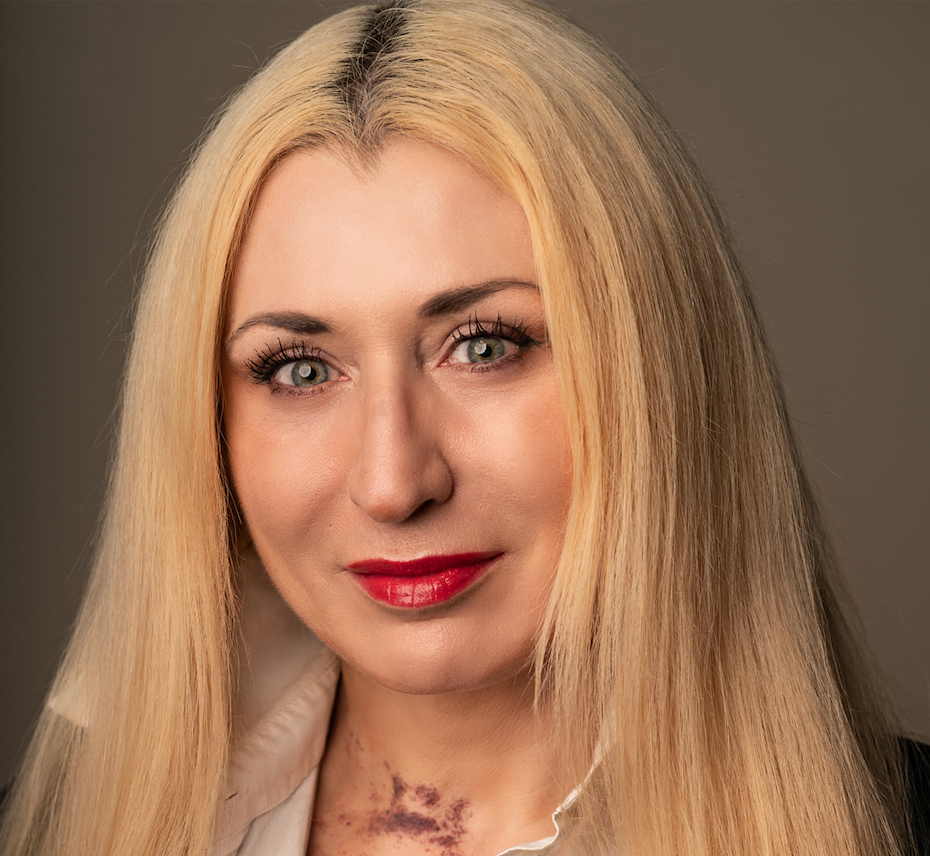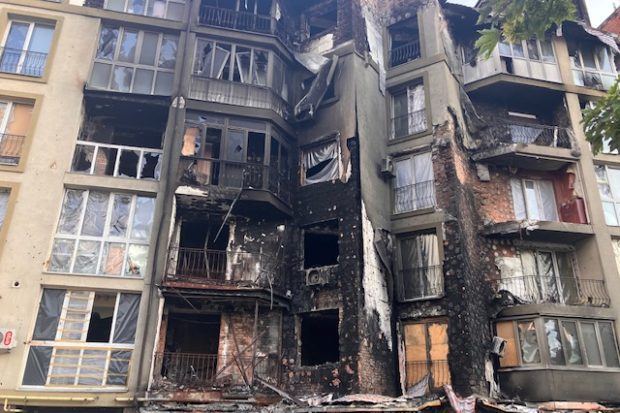
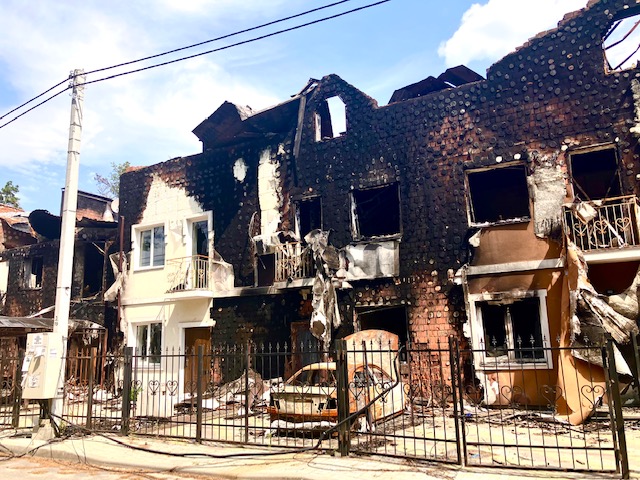
Paradise Turns to Hell
On Feb. 25, glued to the Internet, Nadiya, a long-time Kyiv resident, watched the Russian troops enter Bucha. Russian tanks surrounded her mother’s private boarding retirement home, just the previous day “a paradise in the forest.”
For the next few days, fierce street fighting and massive explosions would not stop. Nadiya browsed through the first photos of destroyed Bucha, in disbelief. The main street was cluttered with burned tanks. A friend’s home bombed.
The reports from the staff of the retirement home were grim: the heating system off; the food supplies running out; the power and Internet down. The basements, where people hid from the air strikes, were freezing cold.
The grocery shops closed. Volunteers delivered food. The staff cooked food in the yard, on the fire.
The worst, though, was the lack of water. First, the employees fished leaves and dirt from the water of an open swimming pool and boiled it, or melted snow.
In a week, though, stepping outside became impossible. It meant death by a Russian bullet. Volunteers bringing food got killed.
Starving and freezing, the retirement home residents started to die. The Russian invaders forbade the burial, and the employees just stored the bodies in one of the rooms.
By mid-March, the management succeeded in negotiating a “green corridor” with the Russian occupiers, to evacuate the elderly. To get to the bus, barely alive people were expected to walk in the snow for miles. When finally the Russian military agreed to bring the buses closer to the entrance, the people were shoved and piled into the buses.
Nadiya’s mother survived and stays at a family home, in relative safety, as no place is safe in Ukraine. Every night, sirens of the air raids sound all over Ukraine. To attack, the Russians military chooses the time of the night when people sleep the deepest.
Every morning, there are reports of more civilians killed and injured and more infrastructure facilities destroyed. On Aug. 17–18, two overnight air strikes on Kharkiv took at least 18 lives and nearly 40 were wounded. The Russians shelled two dormitories of boarding institutions, one for people with disabilities.
The invaders continue to damage power lines, gas pipes and water pumping systems. Thousands of Ukrainians live without power, heat or water. Mykolaiv and many cities in Donbas have been living without water for weeks.
The memories of the Bucha are haunting Nadiya’s family, but they are recovering. Many did not survive the Russian occupation.
Paradise
Before the Russian invasion, the thriving upper-middle-class community, IT professionals, PR experts and business owners enjoyed life in a beautiful setting—pine-tree parks, fountains, gourmet restaurants, posh supermarkets, state-of-the-art beauty salons and auto salons, private kindergartens and retirement homes, pet stores and fully-stocked shopping malls. Many had moved to Bucha earlier, escaping the Russian aggression in the east of Ukraine.
In the spring of 2014, on Sasha and Marina’s first wedding anniversary, the explosions boomed their beloved city of Donetsk in Donbas. Aspiring amateur photographers Sasha, an IT expert, and Marina, a linguist, used to spend weekends taking pictures of the rare rose gardens, rivers and lakes and spotting birds in Donetsk.
After Russia started the war in Donbas, those passionate about Ukraine, their roots and language had to flee. Sasha and Marina, like many, refused to live in the Russian proxy state and fled to Bucha, leaving behind a newly bought apartment and families.
They built a new home in Hostomel, a five-minute ride to Bucha and had to abandon it on Feb. 24, when the Russians entered the area on their way to Kyiv. Their new house was looted and damaged, with many bullet holes in the walls.
After the liberation, they returned and are starting over with remarkable strength and stoicism, amid the air raid sirens and occasional bombings.
Sasha and Marina consider themselves lucky: Many of their neighbors had to hide in basements for weeks and lost their entire houses—and some were killed.
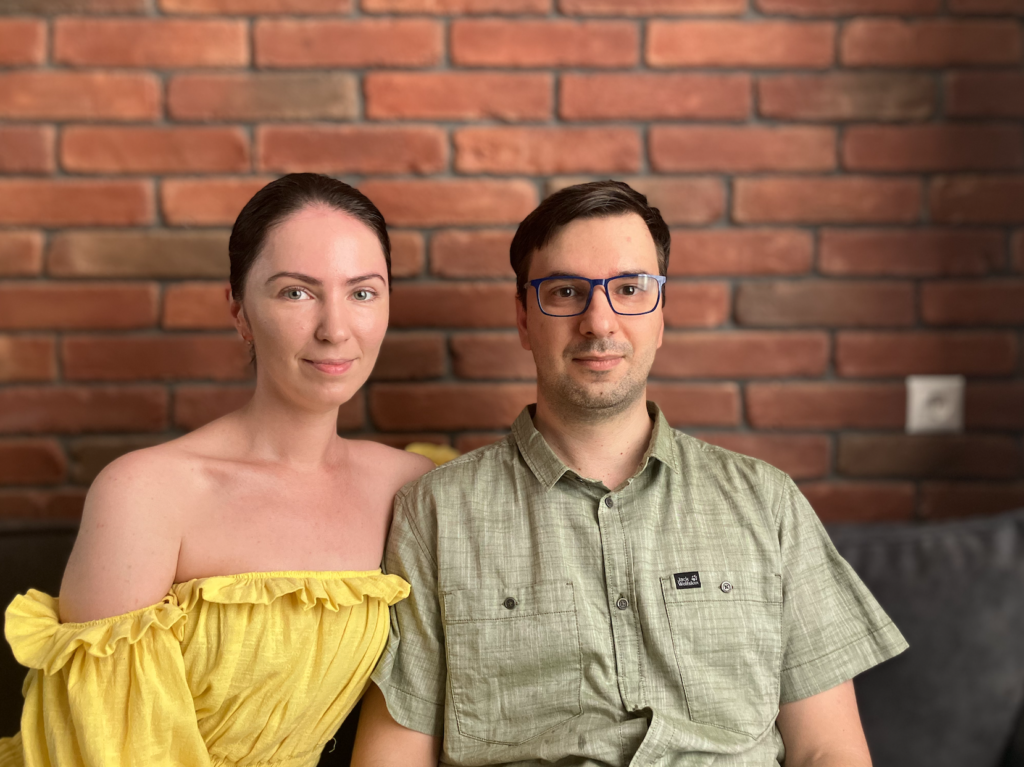
Hell
Russian troops occupied Bucha, Irpin, Hostomel and other small towns in the western suburb of Kyiv, on March 3 during the first week of the full-scale Russian invasion. The Battle of Bucha, a part of the Kyiv offensive, lasted from Feb. 27 to March 31. Failing to encircle and capture Kyiv, the Russians withdrew forces and retreated to the east. Ever since, the bodies of the victims are being discovered in the area.
During the occupation, the Russians tortured and killed local residents to instill fear and control the seized territories—and, sometimes, just for fun. Overall, the killings in Bucha took close to 500 lives.
The families of the people killed by Russians brought the bodies to the morgue of the nearby hospital, but the occupiers banned access to the cemetery. The nearby St. Andrew Cathedral priest gave the morgue staff permission to temporarily bury the dead in the churchyard, in mass graves. After liberation, 116 bodies were exhumed from the mass graves by the church.
Once a busy town, it was now a desert. The Russian military turned many of the residential buildings and businesses to piles of charred rubble. Cars and people disappeared from the streets. Shops were closed and the whole area lived with no power, Internet or mobile connection.
Several high-rise buildings suffered damage. Many were left without roofs and windows. A junkyard with demolished cars, mostly civilian, is another site of the Bucha war crimes: Some of the charred cars were found with families burnt alive inside.
At Yablonska street—now known as “the horror street”— more than 20 bodies were found, on both sides of the street and in yards, some with arms tied-up, shot from the back. The Russians parked their tanks in the yards to use the civilians as a “human shield” to prevent the Ukrainian army from attacking. Local residents had to live in the basements. Getting outside was extremely dangerous: Russians shot anyone, on foot or on a bike.
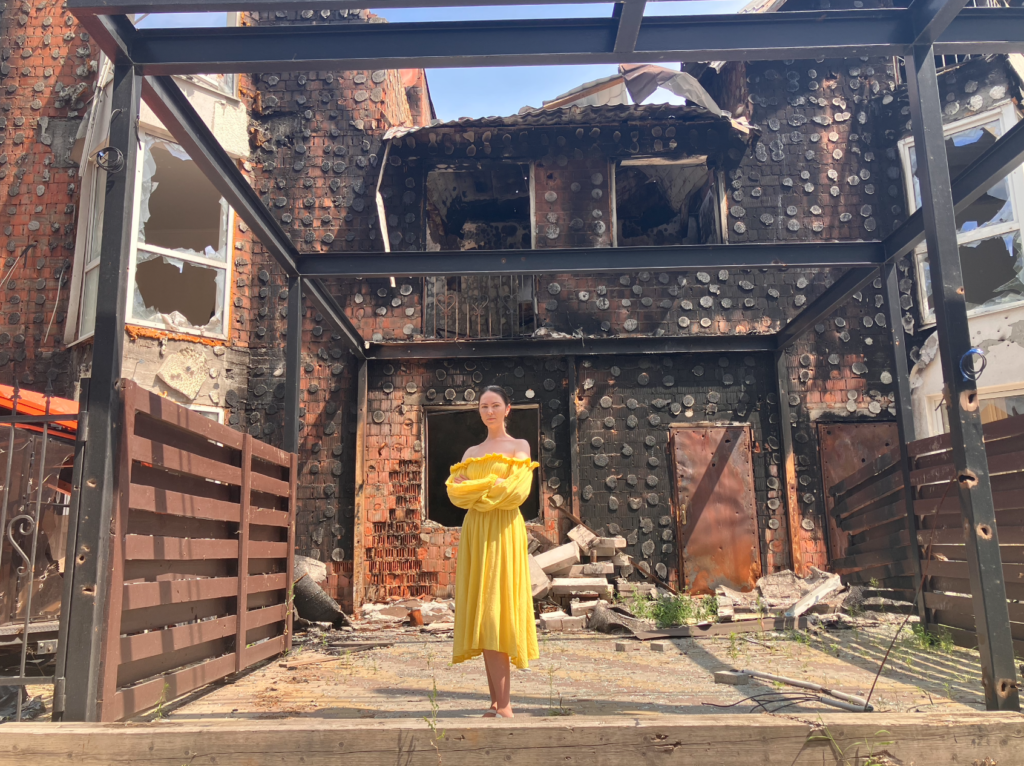
Back to Life
By August 2022, the city council was working on restoring the buildings that could be rebuilt and looking for grants to help fix the destroyed and damaged schools and hospitals. The Vokzalna street had to be cleaned from the remains of Russian tanks.
Just four months after the liberation, the residents are rebuilding their homes and reopening their businesses to the sounds of air raids and occasional explosions. Everywhere, women and men work in their gardens, gathering plums, apples and grapes, watering and trimming their lawns and planting roses. The construction sounds are in the fragrant air. Kids are playing at the newly constructed playgrounds.
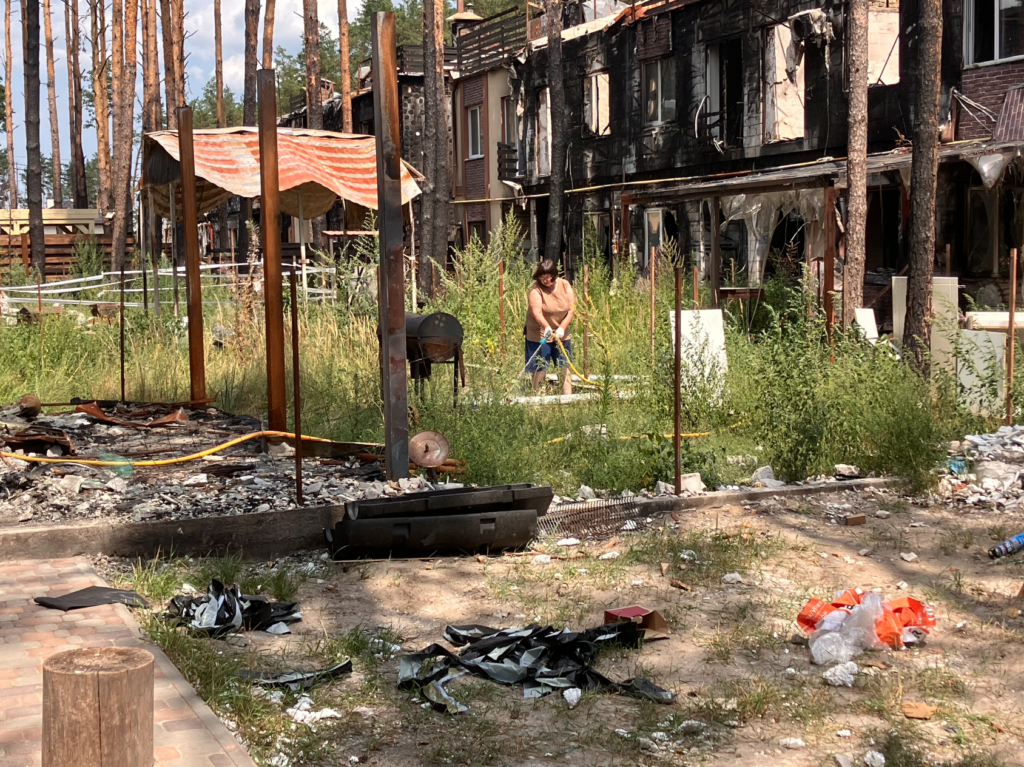
Now free of the Russian troops on the ground, Bucha has opened the doors to many internally displaced people from Zaporizhzhia, Donbas, Kharkiv and Mykolaiv, cities and regions being bombed daily.
“We refuse to be a place of tragedy,” said the deputy mayor of Bucha in an interview. “Russia is a terrorist state and has committed unspeakable horror crimes. Yet, Bucha is a normal, green town, and we want our life back. Ukraine will win and stay a free, sovereign state.”

